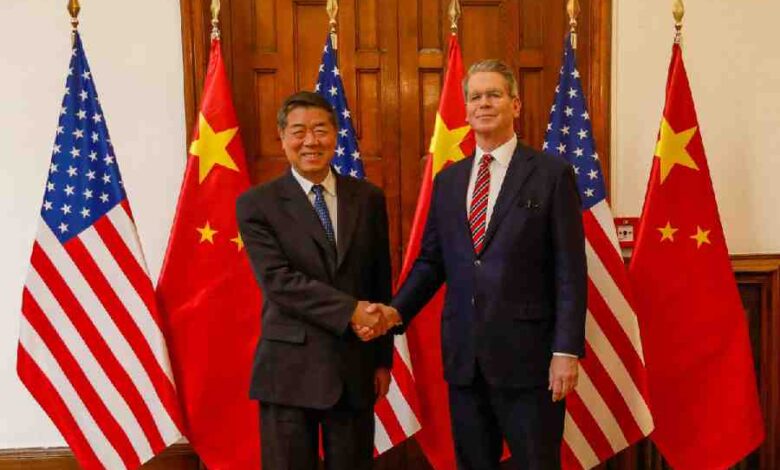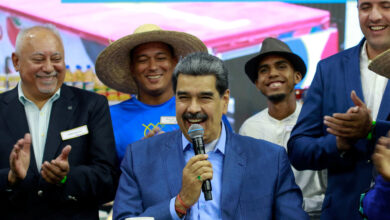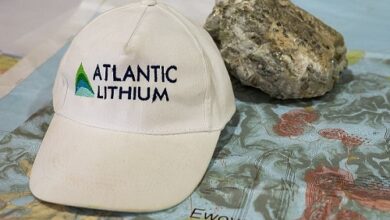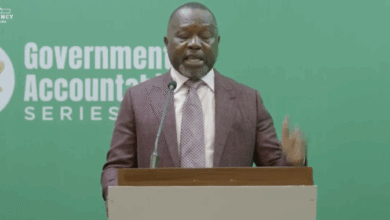
US, China close to TikTok deal as second day of talks resume in Madrid to resolve trade tension
We will see if we can get there at present. We are not willing to sacrifice national security for a social media app, says treasury secretary Scott Bessent
The United States and China are close to reaching an agreement on the short-video app TikTok, Treasury Secretary Scott Bessent said, as a second day of talks resumed in Madrid to try and resolve trade tension between the two countries.
Even if a deal over Chinese divestment from TikTok was not reached it would not affect relations, Bessent added.
“It’s still very good at the highest levels,” Bessent told reporters alongside U.S. Trade Representative Jamieson Greer. “Ambassador Greer and myself have great respect for all counterparts.”
The latest round of negotiations – the fourth in four months – is taking place at the baroque Palacio de Santa Cruz home to Spain’s foreign ministry and concluded the first day on Sunday after about six hours with no indication of a breakthrough.
Bessent said both sides had made good progress on technical details but reaching a deal on other issues would be challenging.
“Our Chinese counterparts have come with a very aggressive ask,” he added. “We will see if we can get there at present. We are not willing to sacrifice national security for a social media app.”
Talks had centered on TikTok, tariffs and the economy, a U.S. government official said, offering no further details.
Extending the TikTok divestment deadline would depend largely on how talks went on Monday, Bessent said. Greer said that while the TikTok issue had been resolved it could hinge on reaching deals on other issues.
“From the Chinese perspective, they view as part and parcel of the potential TikTok deal a variety of matters, whether it’s tariffs or other measures that have been taken over years,” Greer said.
But the United States was not in a position to simply eliminate every measure it had ever taken to try resolve the issue, he added.
“We still have to grind through negotiations and discussions of the common understanding, and I don’t think this is the moment to just pull all those things.”
Delegations led by Bessent and Chinese Vice Premier He Lifeng have met in European cities since May to try to resolve differences that prompted President Donald Trump to raise tariffs on Chinese imports and sparked tit-for-tat measures, including similarly high import duties by China on U.S. goods and a halt in the flow of rare earths to the United States.
The delegations last met in Stockholm in July, where they agreed to extend for 90 days a trade truce that sharply reduced triple-digit retaliatory tariffs on both sides and restarted the rare-earth exports from China to the United States.
Experts had low expectations of a significant breakthrough in Madrid, with the most likely result seen as a further deadline extension for TikTok’s Chinese owner, ByteDance, to divest U.S. operations by September 17 or face a U.S. shutdown.
“I’m not expecting anything substantive between the United States and China unless and until there is a one-on-one meeting between Trump and Xi,” said William Reinsch, a senior trade adviser at Washington think tank the Center for Strategic and International Studies.
“Setting that up is really what these talks are all about.”
Trump has repeatedly expressed interest in a meeting with Xi, but Reinsch said the Chinese would not agree to such a meet until they knew the outcome and were pushing for further easing of U.S. export controls on chips and other high-tech goods.
Bessent said both sides had made good progress on technical details but reaching a deal on other issues would be challenging.
“Our Chinese counterparts have come with a very aggressive ask,” he added. “We will see if we can get there at present. We are not willing to sacrifice national security for a social media app.”
Talks had centered on TikTok, tariffs and the economy, a U.S. government official said, offering no further details.
Extending the TikTok divestment deadline would depend largely on how talks went on Monday, Bessent said. Greer said that while the TikTok issue had been resolved it could hinge on reaching deals on other issues.
“From the Chinese perspective, they view as part and parcel of the potential TikTok deal a variety of matters, whether it’s tariffs or other measures that have been taken over years,” Greer said.
But the United States was not in a position to simply eliminate every measure it had ever taken to try resolve the issue, he added.
“We still have to grind through negotiations and discussions of the common understanding, and I don’t think this is the moment to just pull all those things.”
Delegations led by Bessent and Chinese Vice Premier He Lifeng have met in European cities since May to try to resolve differences that prompted President Donald Trump to raise tariffs on Chinese imports and sparked tit-for-tat measures, including similarly high import duties by China on U.S. goods and a halt in the flow of rare earths to the United States.
The delegations last met in Stockholm in July, where they agreed to extend for 90 days a trade truce that sharply reduced triple-digit retaliatory tariffs on both sides and restarted the rare-earth exports from China to the United States.
Experts had low expectations of a significant breakthrough in Madrid, with the most likely result seen as a further deadline extension for TikTok’s Chinese owner, ByteDance, to divest U.S. operations by September 17 or face a U.S. shutdown.
“I’m not expecting anything substantive between the United States and China unless and until there is a one-on-one meeting between Trump and Xi,” said William Reinsch, a senior trade adviser at Washington think tank the Center for Strategic and International Studies.
“Setting that up is really what these talks are all about.”
Trump has repeatedly expressed interest in a meeting with Xi, but Reinsch said the Chinese would not agree to such a meet until they knew the outcome and were pushing for further easing of U.S. export controls on chips and other high-tech goods.




